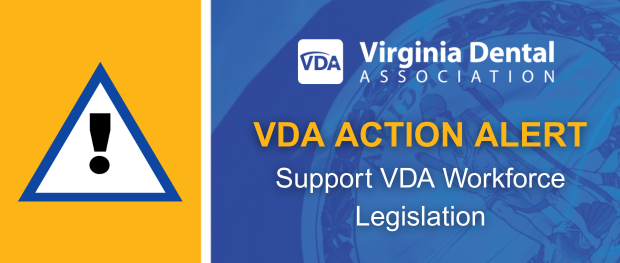ADA prioritizes 7 sections of Opioid Crisis Response Act
The Opioid Crisis Response Act, Senate Bill 2680, is a bipartisan legislation package containing more than 40 proposals from six Senate Committee on Health, Education, Labor, and Pensions (known as HELP) hearings on the opioid epidemic. The hearings produced testimonies from the National Institutes of Health, Food and Drug Administration; Substance Abuse and Mental Health Services Administration; and Centers for Disease Control and Prevention, as well as state governors, expert witnesses and families touched by the crisis. The committee unanimously passed the legislation on April 24.
In an April 23 letter to HELP Committee Chair Lamar Alexander, R-Tenn., and Ranking Member Patty Murray, D-Wash., ADA President Joseph P. Crowley and Executive Director Kathleen T. O'Loughlin thanked the committee for its efforts in addressing the crisis but urged legislators to prioritize pain management. In particular, they called for the need to distinguish pain management in dentistry from pain management in medicine, specifically when it comes to managing acute pain.
"As you know, the ADA recently expressed support for mandatory continuing education for opioid prescribers, limits on the number of pills that can be prescribed for initial acute pain and mandatory use of prescription drug monitoring programs," Drs. Crowley and O'Loughlin wrote. "We believe our policy is the first of its kind among major health care professional organizations and a sign of how seriously we take this issue."
They also said the ADA supports the following proposals in the Opioid Crisis Response Act of 2018:
Sec. 101: State Response to the Opioid Abuse Crisis. This proposal would allow the Department of Health and Human Services to directly provide funding from the 21st Century Cures Act to Indian Tribes, as well as states that have been hit hardest by this crisis. Drs. Crowley and O'Loughlin said these funds could be used to improve prescription drug monitoring programs and states and Indian tribes could also offer clinical training to help prescribers manage acute pain with minimal use of opioids, prevent diversion of controlled substances, identify risky substance use behaviors and briefly counsel and refer those patients for appropriate treatment.
Sec. 403: Alternatives to Opioids. This proposal would authorize technical assistance programs to help entities that provide acute care, such as hospital emergency rooms, implement best practices for using nonaddictive alternatives to opioids. Because dentists often collaborate with hospitals, this proposal could help get patients out of the emergency room and in to dental offices and clinics, where they can receive appropriate, cost-effective care. This also supports the ADA Action for Dental Health initiative.
Sec. 404: Peer Support Technical Assistance. This would support long-term recovery by authorizing technical assistance to help organizations that provide peer support services implement best practices for operating those programs. Drs. Crowley and O'Loughlin noted that for 20 years the ADA has helped state dental societies develop formal peer assistance programs to get dentists into treatment before they have an alcohol- or drug-related incident.
Sec. 501: Study on Opioid Prescribing Limits. This proposal would examine the impact of federal and state laws regulating the length, quantity and dosage of opioid prescriptions and would require the HHS secretary to issue a report. "This report could be critically important in learning more about the effect these laws have on opioid-related deaths and cases of addiction as well as pain management outcomes," Drs. Crowley and O'Loughlin said.
Sec. 503: Education and Awareness. This proposal would authorize the CDC to develop or improve its existing programs and activities, which could include awarding grants and continuing education on safe prescribing of controlled substances (e.g., prescriber limit laws, nonaddictive alternatives, etc.).
Sec. 505: Prevention for States, Localities, and Tribes. This proposal would authorize the CDC to offer training and technical assistance to improve the efficiency and use of state, local and tribal PDMPs.
Sec. 507: Improving Prescription Drug Monitoring. This proposal would reauthorize the National All Schedules Prescription Electronic Reporting Act through 2026. This federal grant program helps states, localities and Indian tribes develop and improve prescription drug monitoring programs. "By streamlining federal requirements for PDMPs, states will be encouraged to share data with one another, thus making the programs more robust," Drs. Crowley and O'Loughlin said.
For more information, visit ADA.org/opioids.









